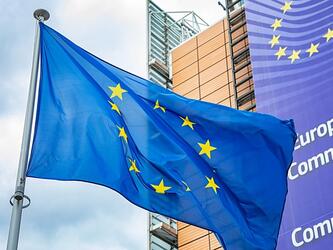Fearing the wurst
Prominent economists – Paul Krugman, Joseph Stiglitz and Thomas Piketty — attacked Germany’s economic stance in many influential English language newspapers, including the Financial Times. Prominent Guardian journalists were equally vocal in attacking Germany. The New York Times in one headline suggested that Germany was ‘risking its reputation’.
Social media, notably Twitter, was awash with anti-German sentiment, with #boycottgermany trending strongly immediately after the agreement between Greece and its creditors.
Germany is an important global exporter, and in 2014 was the third- largest market research market in the world, according to Esomar. Equally it’s a market – or a country – that is often misunderstood. Did the negativity accompanying the Greek bailout have any noticeable perceptual impact on brand Germany? Or was it just a pinprick from a vocal minority?
Happy Thinking People is a globally operating research and marketing consultancy with German roots. We took a pulse check across our key markets – Asia, South America and the US – to see to what extent, if any, perceptions of German-ness had suffered among our clients.
It hadn’t; the tenor of the feedback was that German-ness is an underlying cultural factor that is continually appreciated. Being well-organised, analytical, strategic in approach, reliable… clients are grateful for it, especially in areas of the world where things don’t necessarily run 100% smoothly or according to plan.
They even smile about it in a positive sense – it allows them to relax a little more – knowing that there’s a high(er) likelihood that things – recruitment, technical issues, timings, quotas, reporting, and so on – will work out operationally, but also that there will be a high overall sense of rigour and quality from start to finish.
The managing director of our office in Mumbai, Sabrina Schöder, a native German who has lived and worked in India for more than eight years and speaks good Hindi, puts it like this: “Clients are often glad to see me as a German as part of a project team, or at a debrief. They like the fact that we say ‘yes’ or ‘no’ rather than ‘maybe’. We give clear, straightforward recommendations, rather than sitting on the fence.”
Which is not to say that German researchers can’t see grey zones, handle ambiguity or intercultural complexity – on the contrary. With the complex question of German national pride (or a lack thereof), German market researchers may be better equipped to be great intercultural insight gatherers. Less identity baggage and fewer in-built cultural biases means slipping more easily into local habits and customs, getting closer to evidence and a better understanding of differing reactions, emotions and contexts.
We also looked at the question of provenance. Does ‘Made in Germany’ mean anything at all in a world of global sourcing when consumer preferences in many developed markets – often eco-sensitive – have shifted to local or regional rather than national? Yes and no. Apple’s app store, for example, has recently created a section labelled ‘Made in Germany’ for 13 apps (at the last count) that it considers particularly cool. At the 2015 Gamescom – the world’s largest gaming trade fair – the German gaming federation decided for the first time to present itself under a unified ‘Made in Germany’ motto and stand – to improve visibility – and compete more effectively with other gaming nation states. So country provenance can work positively and, interestingly, in relatively new market segments.
Against this is a whole list of German brands that don’t need to, or wish to, trumpet ‘Made in Germany’ in their marketing or communications – for example BMW, Aldi and Müller. Who knows, or cares, in export markets where they come from, as long as the experience is world-class?
Finally, key economic indicators suggest an ongoing positive outlook for German industry. The Ifo Business Climate Index – a monthly indicator of economic developments in Germany – was up slightly in August 2015 to 108.3, from 108 in July ( 2005 = 100 ). Export figures were also up ( 13.7% June 2015 v June 2014; 7% YTD June 2015/2014 ). Representative image data from 2014 – predating the Greek crisis – also contradict the social media/ newspaper narrative: image data from the 2014 Anholt-GfK Nation Brands Index saw Germany take the number one ‘best nation’ slot over 48 other developed/ developing countries, knocking the US off pole position after five years’ dominance.
So, in response to Nobel Prize-winning economist Paul Krugman’s question: “Who will trust Germany’s good intentions after this?” in The New York Times (July 2015 ), our suggested answer is: many people across the globe are continuing to do so, and voting with their wallet.
Edward Appleton is director of global marketing at Happy Thinking People
This article originally appeared in Issue 11 of Impact magazine

We hope you enjoyed this article.
Research Live is published by MRS.
The Market Research Society (MRS) exists to promote and protect the research sector, showcasing how research delivers impact for businesses and government.
Members of MRS enjoy many benefits including tailoured policy guidance, discounts on training and conferences, and access to member-only content.
For example, there's an archive of winning case studies from over a decade of MRS Awards.
Find out more about the benefits of joining MRS here.













0 Comments